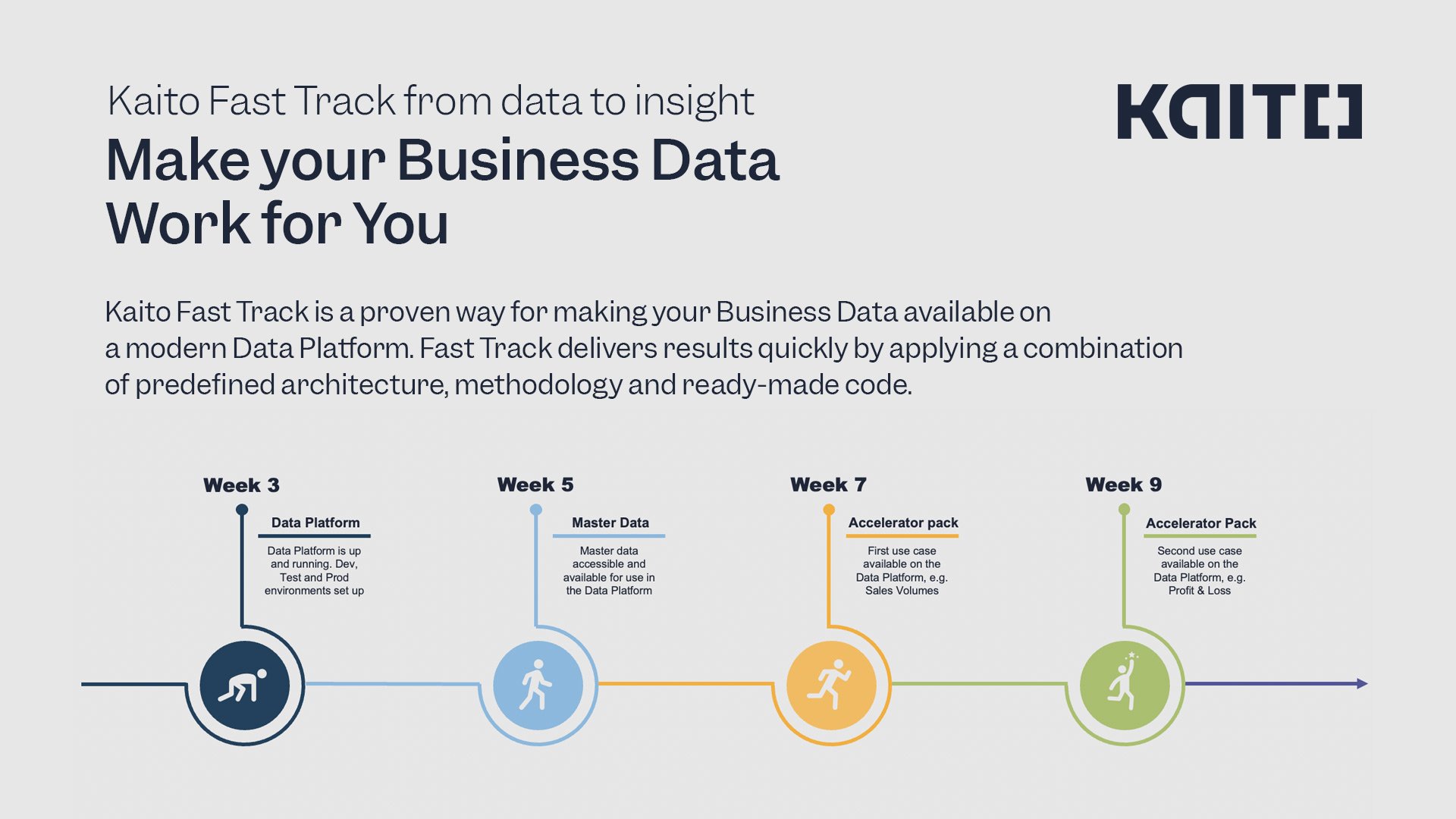“Our business is unique”. I hear this almost every time when talking to our customers about their data needs. The notion is naturally true, but I argue that we should step forward and recognize that there are many more things in common between implementations than there are dissimilarities.
Too often data initiatives are still conducted in a style that resembles the way old artisans worked. This is especially true in data engineering work. We need to recognize that we solve similar problems every time a bit differently and lose a lot of learning and efficiency. The Industrial revolution showed us that the way to solve this is productization.
The benefits of standardized products are quite easy to understand from our daily lives. When you buy a product for example from a supermarket, you know what you're getting, you get it quickly, and you usually buy it for a specific need. There is documentation and description of the product so you know when and how to use it. We can use breakfast cereals as an example. It is a standardized product that is easy to buy and enjoy with a list of ingredients on the side of the box and even suggested portion sizes.
For enterprise companies there is seldom an option to buy one specific ready-made product that will solve all possible needs. This leads companies to a path of customisation. We don't know in advance exactly how many ingredients we need to make an IT cereal package and how many portions of the finished product will be enough. For this reason, the exact price is unknown and there is usually uncertainty on how long it will take to complete.
However, in the modern cloud era we are experiencing a world where small investments can buy us infrastructure, applications, and systems as a service from the cloud and scale them according to our needs. We live in a world where everything integrates with everything and there are many options for the building blocks of the solution. This is a great place to jump to the core topic of this blog post, i.e. the benefits of productization in data and analytics solutions.
Modern approach to productized services in the data and analytics world is to combine modular building blocks and recurring elements in manner that can be repeated easily. It is however not enough to only combine the building blocks to get the benefits of a productized service. We need to clarify the use cases, describe the value generated and standardize the whole.
From a project and development point of view , productization means that you can utilize repeatable working methods, reusable code, ready-made reference architectures, and follow a previously proven project plan and phasing.
At this stage, it is appropriate to note that productization does not mean that everything is standardized. One of the basic characteristics of the delivery of a solution is customer-specific customization of a certain degree. This can include naming data fields and metrics to match the terminology used by the customer in the business. The aim of productization is to find the right balance between standardization and customization.
Benefits of productized solution
- No Scope Creep In the productized solution, the scope and end result are predetermined, which avoids an increase in scope in the middle of the project, i.e. the so-called “Scope Creep”, which in turn causes delays and additional costs. With productization, schedules and costs are easier to estimate, as there is already a comprehensive description and documentation of the solution.
- Speed A productized solution brings value to your organisation faster because it can be delivered quicker and more efficiently. Since there is experience in delivering the same solution in the past are not only the methods and processes standardized, the codes and models are reusable, but also the creators experienced in the delivery of the solution in question, as they have provided the same solution several times.
- Consistency in addition to efficiency and increased understanding of the content of the productized solution, one important benefit of productization is increased consistency. After the solution delivery has been repeated several times, the methods have been standardized and the quality of the solution is no longer dependent on individuals. Lessons learned from previous deliveries have also been taken into account to improve quality and consistency.
Of course, the productized solution also has its challenges, but it is its own topic for a blog post. At this point, it should be said that productized solutions are designed to meet a specific need or to solve a particular challenge. If your organization has a need or challenge for which the productized solution fits without major customizations, then it is well worth considering. Especially in today's world of modular development, when productized cloud solutions can be scaled and developed further.
Our own productized approach in to building modern Data Platforms
Modern cloud-based services enable a quick and cost efficient to kick-start a cloud data platform initiative. At Kaito we have productized our approach in building a Data Platform. The Kaito Fast Track to Insight productized service consists of a predefined data platform architecture, ready made code base, templates and an agile delivery methodology. This allows quick delivery of concrete results and a framework for delivering continuous value to the organization. Our Fast Track reference architecture is fully scalable and it’s easy to expand into new use cases piece by piece. I’m happy to show more and hear your thoughts. You can find more about our Fast Track from here.
Johan Wikström
VP of Business Analytics @ Kaito Insight






